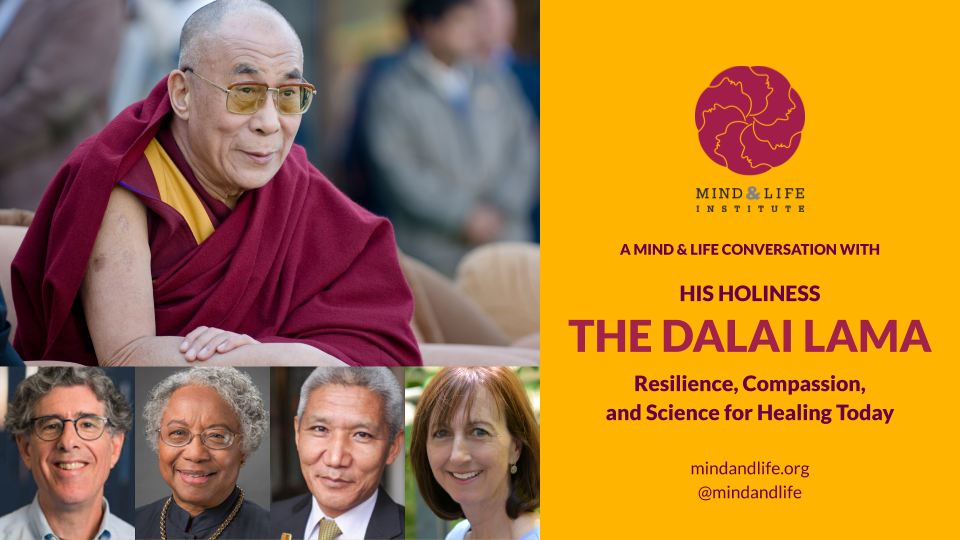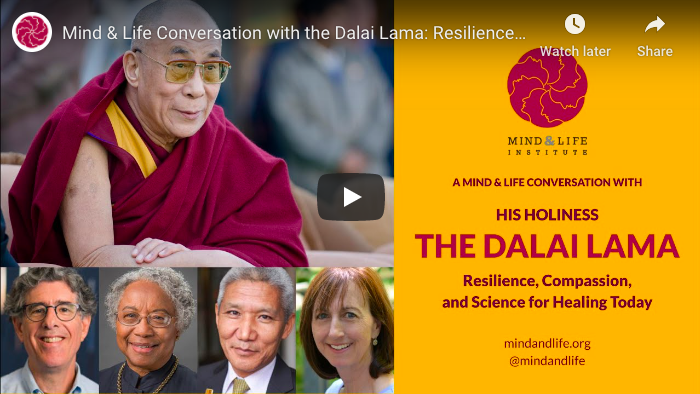What is a Land and Peoples Acknowledgement, and Why is it Important A Land and Peoples Acknowledgement is a formal statement rooted in Indigenous protocol that recognizes the peoples who traditionally inhabited the land where you live or work and the relationship that continues to exist between Indigenous Peoples and their traditional territories. It’s a …
Topic Archives:
Our Commitment to Racial Equity and Inclusion
At the heart of the Mind & Life Institute’s work is nurturing understanding and action toward a world that embraces our shared humanity. We recognize that barriers to realizing our fundamental interconnectedness exist not only in the human mind, but are deeply embedded within institutions and structures. Our commitment to dismantling institutional racism begins at …
Continue reading “Our Commitment to Racial Equity and Inclusion”
Can We Change Racial Bias?
Trayvon Martin. Eric Garner. Michael Brown. Freddie Gray. Sandra Bland. Ferguson. Baltimore. Charleston. Alton Sterling. Philando Castile. In the wake of so many recent tragedies involving racial discrimination, Americans are taking a hard look at this systemic and divisive issue in our culture, and asking what can be done to change it.
Message from the Dalai Lama in a Time of Crisis: “We Have to Think of One Humanity”
In a world besieged by the COVID-19 pandemic and rocked by anti-racism protests, more than 1.3 million people tuned-in to a livestream event, simultaneously translated into 14 languages, to hear the Dalai Lama offer insights on the way forward. Hosted by the Mind & Life Institute, the June 19 “Conversation with the Dalai Lama on …
2020 Mind & Life Conversation
June 19, 2020, 10:30pm EDT The Mind & Life Institute was honored to host this special livestream event with His Holiness the Dalai Lama. The program explored insights for individual and collective healing, integrating contemplation, science, and action, helping us to consider how crisis can be an opportunity to shift human consciousness and embrace our …
Contemplating 400 Years of Inequality: A Mindfulness & Compassion Community Practice
Harnessing the power of the 400th anniversary of the arrival of enslaved Africans to the U.S. in 1619, scholars have designed a mindfulness-based learning experience that supports communities with taking a contemplative walk through history to process our collective past. This presentation explores the use of a 4ft x 20ft timeline as a contemplative learning …
No Place Like Home: Decolonizing our American Dreams & the Necropolitics they Bury
Space seems limited these days, limited and limiting. The places we inhabit can inhabit us, leaving our imaginations of how to live otherwise too constrained to resist the tendencies of hoarding, hunting, and fencing that define our ideals, feeding habits of homemaking that have soaked the American Dream in so much violence. Rather than letting …
Our stories are our medicine: Centering culture and healing through story work with Indigenous communities
Indigenous scholars have called for theoretical and methodological research approaches that center on Indigenous knowledge, culture, and history. As such, I adopt a historical trauma theoretical lens in this presentation to explore health issues in Native and Indigenous communities in which the continued impacts of colonial violence is central. In addition, by highlighting the ongoing …
The Role of Contemplative Practice in Cultivating Cultural Humility and Inclusivity in Research and Education
This presentation discusses contemplative practices as they can be used to help researchers and educators develop prosocial attitudes and behaviors such as cultural humility, discomfort resilience and fierce compassion. In addition to discussing the literature on prosociality and cultural humility, the presenter shares examples from her international research as it relates to the development of …
2020 Mind & Life Conversation with the Dalai Lama: Resilience, Compassion, and Science for Healing Today
The Mind & Life Institute was honored to host this special livestream event with His Holiness the Dalai Lama. The program explored insights for individual and collective healing, integrating contemplation, science, and action, helping us to consider how crisis can be an opportunity to shift human consciousness and embrace our shared humanity. For viewers in …







